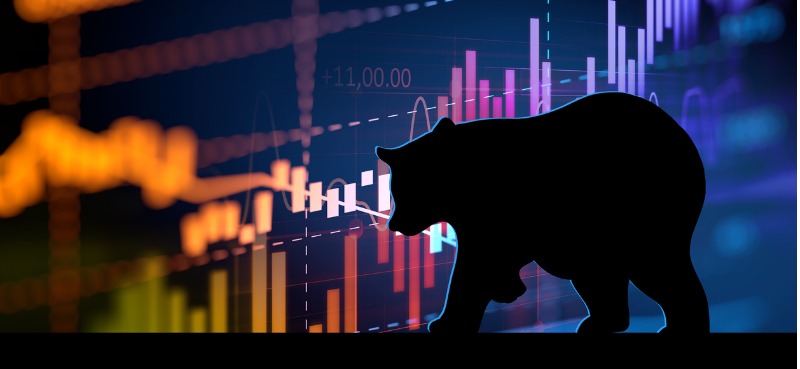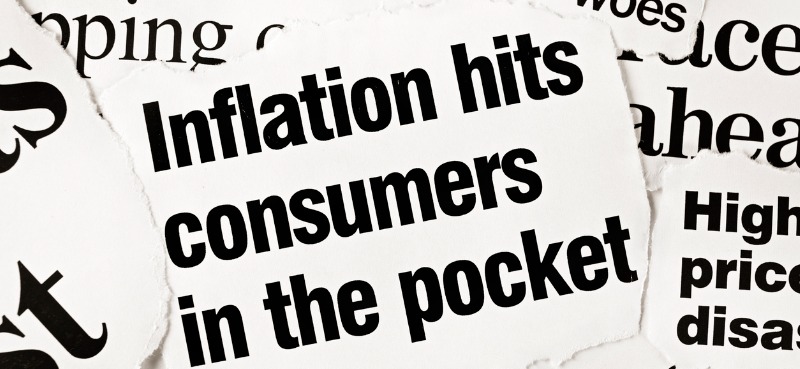What would you do if a stock on your watchlist lost 25% of its value?
Would you snatch it up—or stay far away?
If your answer is, “It depends,” we’re on the same page.
We understand that every market… every stock… and every situation is different.
It’s especially true during a bear market, when most stocks are selling off.
Not every steep discount means a bargain.
Just how far a stock will fall depends on several factors.
Some are company-specific: a bad earnings report, product recall news, a retiring CEO, market share loss…
Others have to do with the direction of the overall market.
In a bear market, stocks drop indiscriminately as panic spreads from the riskiest stocks to the rest of the market.
This selling creates many new bargains—but that doesn’t mean you should buy every stock that plunges. It’s not a good strategy—especially in a recessionary environment, where many stocks could keep falling for longer.
When it’s all said and done, I suspect the bear market of 2022 will look quite similar to the dot-com bubble burst. Countless companies went completely bust… Quite a few other high-flyers of that time managed to pull through—but ultimately failed during the Great Recession… And the stocks of many survivors, like Cisco (CSCO), never recovered their bubble levels.
However, Cisco was still a better bet than most internet stocks over that time frame.
From the end of 1999 (three months before the bubble burst) through the end of 2009, Jacobs Internet (JAMFX)—a mutual fund focused on the best tech companies selling at the best prices—lost more than 3/4 of its value. Meanwhile, Cisco lost 55%.
The dot-com bust teaches us an important lesson about how to invest in today’s market: You want to own quality stocks—companies with well-established and profitable businesses… low debt… significant cash reserves… strong brand names… patents and other business moats… and, ideally, dividends.
Not only are they safer to own in a weak economy… they’re better bets over the long term—a win-win for investors.
Look for companies that sold off without any company-specific bad news. Take the likes of Apple (AAPL), Walmart (WMT), Pfizer (PFE), Berkshire Hathaway (BRK/B) or Alphabet (GOOGL)—all of which are on sale today (compared to the start of 2022).
These companies have dominant positions in their sectors. They can grow their cash flows and profits even in a tough economy. And they can reward shareholders via stock buybacks… growing dividends… or appreciating stock prices.
These are the types of stocks you want to scoop up at a discount… and hold through an extended downturn.
And of course, you should avoid stocks that sold off for a good reason. For example, if there are unexpected customer losses (like Netflix)… an industry-wide slowdown (like Bed Bath & Beyond)… or overblown inventories just as demand is declining (like Peloton).
These types of stocks often decline much more than their respective sectors. And they’re an especially bad bet in a recessionary market.
Also, avoid stocks with growth outlooks declining faster than GDP… especially if they’re still overpriced.
Many young tech companies belong to this category. The business model of generating as much revenue as possible (while ignoring profits) simply doesn’t work when it’s not being propped up by free money. And if these companies can’t continue building up their businesses at that previous pace, they’re likely to lose speed faster than the market.
Yes, such stocks might be good for a shorter-term “bounce” trade—but don’t expect them to return to their former glory anytime soon—if ever.
To fully take advantage of the 2022 selloff, you must understand the reasons for specific stock declines—and distinguish between company vs. market reasons. Doing so can mean all the difference between profits and losses.
Plus, watch out for valuations. Expensive stocks are especially risky in a recessionary market.
High-quality stocks, especially those with dividends, are your best bet to profit in today’s environment. But stay disciplined: Develop a plan… and follow it.
If you stay focused on quality, dividend income, and low-risk growth… you’ll not only win in this market… you’ll start building a foundation for big profits for years to come.
P.S. Yesterday in Unlimited Income, I recommended an ideal recession play…
Because this consumer goods king provides essential products, it’s set to thrive regardless of economic conditions… It owns some of the most powerful brands in the world… And it pays a market-beating yield.
Join us today risk-free to access this name—as well as a portfolio full of my favorite dividend stocks, many of which are trading at incredible bargains right now.





















